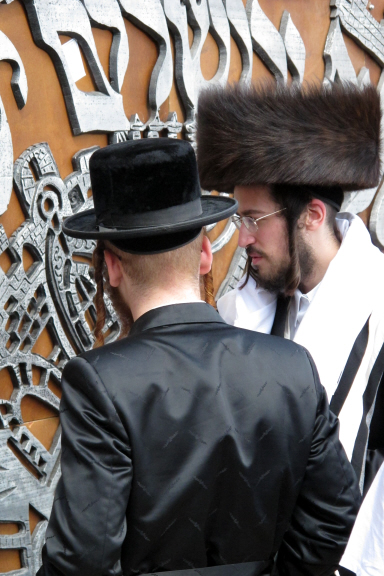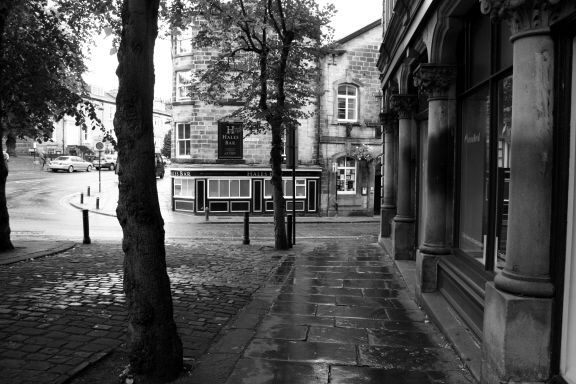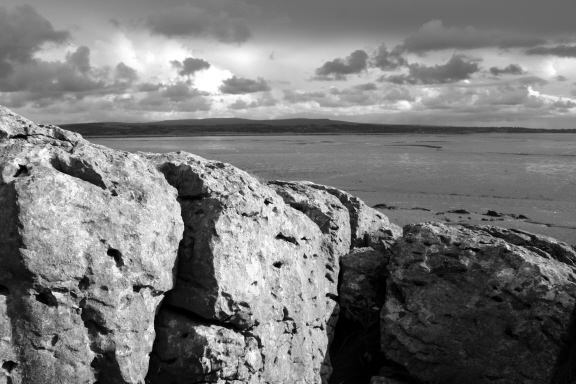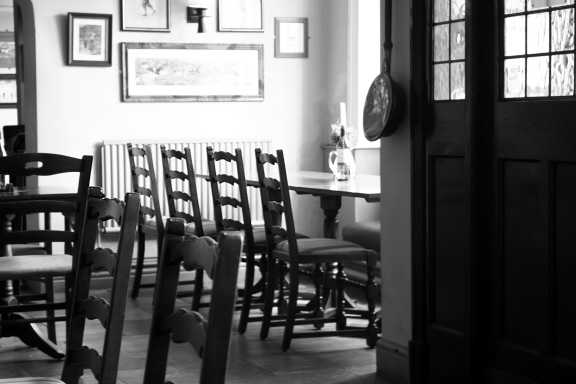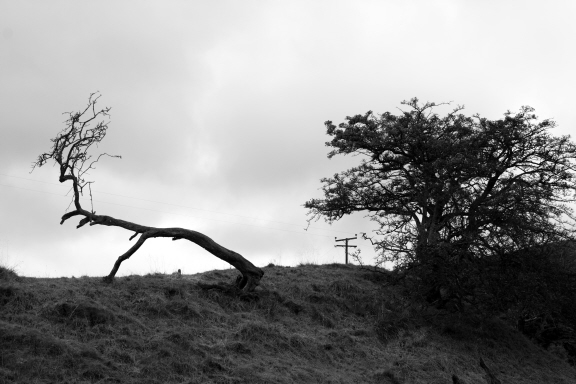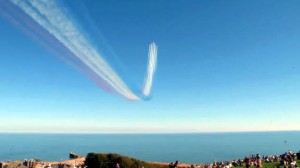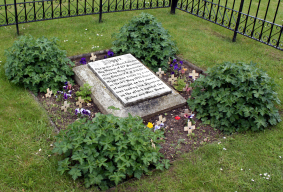Just back from an appearance at the Sunday Times Oxford Literary Festival, in the preternaturally warm March weather. Oxford looked ravishing, the sandstone colleges and quads glowing in the sunshine, the rivers calm and peaceful, sunbathers and walkers everywhere. The trees stood wintry and leafless above, casting stark shadows over the meadows. It was a time for reflection.
As we arrived in Oxford, the shortlist for the 2012 Clarke Award was announced, providing much material for that reflection.
This year I took an interest in the books that were being tipped for the award, and as a consequence I’m in the unusual position of having read almost everything that is either on the final shortlist as announced, or which narrowly missed being on it.
It seems to me that 2011 was a poor year for science fiction. Of the sixty books submitted by publishers, only a tiny handful were suitable for awards. The brutal reality is that there were fewer than the six needed for the Clarke shortlist. Many of the submissions were fantasy of the least ambitious type, and many of the science fiction titles were firmly embedded in genre orthodoxies, to their own huge disadvantage and discredit. Discounting all those submissions did not leave many competitors at the top.
This first impression led naturally to a question that is often asked: what is an award like the Clarke actually for? Well, obviously to reward a writer who is seen to have done well that year. But there is the less often admitted reward for the sponsor, in this case the late Arthur C. Clarke, who evidently liked the idea of a literary award named after him. But with Sir Arthur now gone to the great communications satellite in the sky, the remaining collective motive must be to make some kind of statement to the larger world about the condition of science fiction writing in the present day. We want the best writer to win every year, but we also want to have a showcase to demonstrate that he or she is the best of an exciting bunch, that the overall activity is a progressive, modern literature, with diversity and ambition and ability, and not the pool of generic rehashing that the many outside detractors of science fiction are so quick to assume it is.
In short, the winner of the award must be found within an excellent shortlist, that the win must seem to have been hard-won, and that the choice was the result of reasoned argument and intelligent debate amongst the judges.
So let’s consider the shortlist the judges have come up with in 2012. I’ll begin, briefly, with a note of what they have not included.
Three novels, perhaps four, are outstandingly ignored. In some other year, and to some other group of judges, any of these novels or perhaps all of them would have been seen as natural choices for the shortlist.
Ian R. MacLeod is a former winner of the Clarke (as well as being one of the most consistently excellent stylists in British science fiction). His novel Wake Up and Dream (PS Publishing) makes an eccentric choice in its plot, in casting the actor Clark Gable as a private eye, which some might think counts against it, but MacLeod writes witty, inventive and attractive prose, always compulsively readable, and with a flair for a surprising narrative. He is one of the writers we should be most proud of. To have omitted his new novel is inexplicable.
Just as mystifying is the omission of Simon Ings’s novel Dead Water (Corvus). This is modern science fiction in full pomp: it has a multitude of ideas, a wide-ranging narrative, an almost unbelievably ambitious casting of its net, taking one narrative chance after another. It is also a beautifully written novel, full of colour and inventive image. It is a book that should be standing as a hot favourite to win the award, not one to be discarded as an also-ran.
I am a fairly well known dissident from Adam Roberts’s fiction (at least, well known as such to Mr Roberts), but that was in a negative review I wrote in 2004 of his novel Snow. The years have passed. Roberts has emerged as one of our very best critics of science fiction, arguing in an informed way, and in eloquent and readable English, for the books he discusses. Not at all discouraged by my snotty remarks in the Guardian he has gone on writing novels with energy and increasing skill. I saw a couple of negative reviews of his new novel By Light Alone (Gollancz), but what was described as the silly idea of the novel made me laugh, and I sensed an ironic intelligence at work and some sophisticated satire in the book. I have not been able to read all of it in the time available, but I read about the first 80 pages and I liked what I found. I plan to finish it soon. It is a most unusual and amusing book, with many wicked satirical moments. Adam Roberts has been shortlisted before – it is amazing that he should be ignored this time.
Finally, Lavie Tidhar’s novel Osama (PS Publishing). Mr Tidhar is exactly the kind of writer to whom the Clarke Award should be drawing attention. He is young, ambitious, skilled and original. Osama is an ingenious inversion of modern history: Osama bin Laden is the central character in a string of pulp novels allegedly written by one Mike Longschott. The terrorist crimes we normally attribute to bin Laden exist, in this novel, in a different realm. There is excellent, evocative and atmospheric description, as well as much well-written action and plotting. The book, incidentally, is a beautiful production, an edition sure to be highly collectible in the future. Whether or not Osama might actually win the award (in an alternative universe in which the present Clarke judges have no say) is not for me to guess at, but the fact that Lavie Tidhar has not been shortlisted is an outrage.
Speaking of outrages, let’s turn to the shortlist with which we have actually been presented.
Of the six shortlisted novels, I can find only one which I think is something we should be proud of. I refer to The Testament of Jessie Lamb, by Jane Rogers (Sandstone Press). Ms Rogers is a successful and intelligent writer from what the SF world calls the ‘mainstream’. Her venture into speculative fiction gave her career an unexpected setback, in that none of the trade publishers would accept it. It eventually appeared from Sandstone, a tiny indie publisher based in Dingwall, Ross-shire. It was quickly recognized by many commentators in the SF community as a work of real interest, and to the credit of the judges (the only one they deserve) it has made it to the shortlist. If this alone encourages Ms Rogers to try her hand at more speculative fiction in future then the whole business has been justified. It is not to my mind a wholly achieved novel: it is written with real style, excellent characterization and a lot of genuine emotion, but to be fully realized as a work of speculative fiction it needs a wider canvas, a sense that larger events are mounting in the background. However, it deserves its place on the Clarke shortlist, and if things go on as they are at present it ought to win.
Let me now turn to the most highly argued novel, for and against, on the list: Embassytown by China Miéville (Macmillan). For reasons some people might readily understand, I have not until now had anything to say about this novel, but events have freed me. I like China as a person, and in his unsought role of media-friendly spokesperson for the SF world he has done well and has not aroused controversy. He is obviously serious about writing, believes in the weird or the speculative novel as a genuine force in literature, and aims high. He is an enterprising writer who comes up with some excellent ideas, and many of his images are memorable and effective.
Miéville has already won the Clarke Award three times – which is not his fault, and one assumes not his intention. No doubt he is pleased to have done so. His current novel is the leading contender for this year’s award, and if it becomes the winner then it will be his fourth. Again, not his fault and not apparently what he necessarily seeks, but also it’s safe to assume he would not turn it down.
However, a fourth award to this writer would send out a misleading and damaging message to the world at large: it suggests that not only is Mr Miéville the best the SF world can offer at the moment, he is shown to be more or less the only writer worth reading. Worse even than this, it would send a misleading message to China Miéville himself.
Although Miéville is clearly talented, he does not work hard enough. For a novel about language, Embassytown contains many careless solecisms, which either Mr Miéville or his editor should have dealt with. This isn’t the place to go into a long textual analysis, but (for example) a writer at his level should never use ‘alright’ so often or so unembarrassedly. He also uses far too many neologisms or SF nonce-words, which drive home the fact that he is defined and limited by the expectations of a genre audience. On the first few pages, alone, he uses the words ‘shiftparents’, ‘voidcraft’, ‘yearsends’, ‘trid’, ‘vespcams’, ‘miab’, ‘plastone’, ‘hostnest’, ‘altoysterman’ … Yes, of course, it’s possible to work out what most of these might mean (or to wait until another context makes them clearer), but it is exactly this use of made-up nouns that makes many people find science fiction arcane or excluding. A better writer would find a more effective way of suggesting strangeness or an alien environment than by just ramming words together. Resorting to wordplay is lazy writing.
I also find Miéville’s lack of characterization a sign of author indifference: Embassytown is full of names, full of people, but mostly they just chat away to each other, interchangeably and indistinguishably. And for a writer who makes so much of ambience, China Miéville’s fiction lacks a sense of place: this is not the same as a lack of description, as there is a lot of that, but a way of using a physical environment as something the characters notice, respond to, feel themselves to be a part of, so that the reader can also sense and respond to it. In Embassytown there is scene after scene in which these weakly drawn characters twitter away to each other in what might be a field or an airport terminal or someone’s front room, for all the lack of evocation the author manages.
This is not to say that Embassytown is a bad novel. It is not, but neither is it a good one. It has too many common flaws that could have been eradicated by a more ruthless editorial process in the writing, or even more simply by an extra draft of the manuscript. Nor does it suggest that Miéville is a poor or failing writer: he is obviously not, but unless he is told in clear terms that he is under-achieving, that he is restricting his art by depending too heavily on genre commonplaces, he will never write the great novels that many people say he is capable of. In the short term, to imply that this is the best science fiction novel of the current year by giving it a prize, or even shortlisting it for one, is just plain wrong.
Let me deal quickly with the rest of the shortlist. It is indefensible that a novel like Charles Stross’s Rule 34 (Orbit) should be given apparent credibility by an appearance in the Clarke shortlist. Stross writes like an internet puppy: energetically, egotistically, sometimes amusingly, sometimes affectingly, but always irritatingly, and goes on being energetic and egotistical and amusing for far too long. You wait nervously for the unattractive exhaustion which will lead to a piss-soaked carpet. Stross’s narrative depends on vernacular casualness, with humorous asides, knowing discursiveness, and the occasional appeal of big soft eyes. He has PC Plod characters and he writes och-aye dialogue! To think for even one moment that this appalling and incapable piece of juvenile work might actually be chosen as winner brings on a cold sweat of fear.
Of Greg Bear’s Hull Zero Three (Gollancz) there is little to say, except that it is capable in its own way, and hard in the way that some people want SF to be hard, and it keeps alive the great tradition of the SF of the 1940s and 1950s where people get in spaceships to go somewhere to do something. In this case, the unlikely story begins as the interstellar spaceship arrives somewhere. The paragraphs are short, to suit the expected attention-span of the reader. The important words are in italics. Have we lived and fought in vain?
Another nostalgic effort is Drew Magary’s The End Specialist (Harper Voyager). This too is written in the type of fast-moving, quickly comprehensible vernacular that Charles Stross aspires to without success, but in Magary’s case it’s quite effective. It tells the story of a medical treatment that confers a form of immortality on anyone with a few thousand dollars to spare. The new future this creates unfolds inevitably. I was much reminded of past efforts in similar vein: notably Damon Knight’s A for Anything (1961), and various works by writers like Frederik Pohl, William Tenn and Poul Anderson. Not bad precedents with which to be compared, perhaps, but this is not a literature of reminders, of retreads, of slightly updated versions of existing works. Speculative fiction is for the present, on the cutting edge, looking forward, not back. But remember what these Clarke judges have already done! Magary could win with this book; brace yourself.
Sheri S. Tepper’s The Waters Rising (Gollancz) – how can one describe it? For fuck’s sake, it is a quest saga and it has a talking horse. There are puns on the word ‘neigh’.
Let’s move on to the point of all this.
We have a dreadful shortlist put together by a set of judges who were not fit for purpose. They were incompetent. Their incompetence was made more problematical because the overall quality of the fiction in the year in question was poor. They did not know how to resolve this. They played what they saw as safe.
They failed themselves, they failed the Clarke Award, and they failed anyone who takes a serious interest in speculative fiction.
You sometimes see past jury members trying to rationalize their role in the final decision. ‘Listen, I wanted BOOK A to be on the list, but I was out-voted by the others. However, I did manage to get BOOK B up there. Yes, I know BOOK C is terrible, but we argued about it for two hours, and in the end I agreed to it being on the list if we had BOOK D on the list too.’
A jury decision is a joint and collective decision. Whatever the process of discussion, whatever compromises are made en route to a decision, everyone on the panel is responsible for the outcome. There will always be minority opinion, but it becomes irrelevant at the end. If someone on the panel is in total and serious disagreement with the others, then the only course is to say so publicly, then to resign.
Of the existing Clarke shortlist, we have heard no dissent from any of the panel. Here is Andrew M. Butler, quoted on the Guardian website (26th March 2011): “[The shortlist]’s got something for everyone: alien contact, post-apocalyptic disaster, near future cyberpunkish police procedural,” he said, adding that the variety demonstrates the health of the SF scene. “It’s exciting because you can’t fit it in a box.”
Andrew Butler has thus endorsed the decision of the panel, and therefore reveals himself as incompetent as the others.
The easy way out of this problem is to do nothing. We wait for 2nd May, we troop along to the awards ceremony and we wait for the decision to be announced. In a sense, it does not matter which one of the six books is announced, because all of them are deficient in the ways I have described. (If this happens, I hope the winner is Jane Rogers, because the deficiencies in her novel are much less serious than those in the others.) The true winner of the award, the writer of the best book of last year, will never be known, because he or she is not on the shortlist.
But there is a better way forward, and here it is.
1. The present panel of judges should be fired, or forced to resign, immediately. Their names are Juliet E. McKenna, Martin Lewis, Phil Nanson, Nikkianne Moody and Rob Grant. Chairman Andrew M. Butler should also resign. These people have proved themselves incompetent as judges, and should not be allowed to have any more say about or influence on the Arthur C. Clarke Award.
2. The 2012 Arthur C. Clarke Award should be suspended forthwith, and the planned awards ceremony on 2nd May should be cancelled.
3. The award fund (£2,012.00, as I understand it) should be held over until next year. Next year’s fund should be added to it, so that the prize for 2013 becomes £4,013.00.
4. The 2013 Clarke Award should be made to the best novel published in the two years ended 31st December 2012. All novels currently eligible for the 2012 award, whether or not they have been shortlisted by this year’s panel, are eligible again.
5. All the other usual rules of the Award should be applied.
And just in case this modest suggestion of mine is taken up, let me add one final thing:
If enough people seem to think that I have proposed this in my own interests, and that it is an attempt to have my own work made eligible once again, then I would withdraw my novel The Islanders from competition. If that does not satisfy such people, then the 2013 eligibility could be based simply on the books from 2012: and the doubled award be given to one of them. I have nothing published in 2012 that would be eligible.



